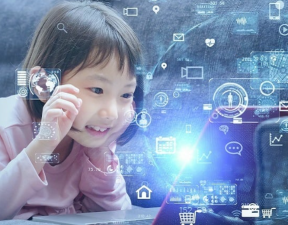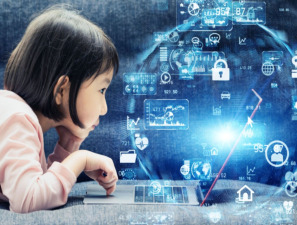In the era of rapid development of science and technology, artificial intelligence is penetrating into various fields at an unprecedented speed, and the field of education is no exception. As an emerging educational model, artificial intelligence education combines advanced technology and educational concepts, bringing new changes and opportunities to traditional education, and also triggering a series of extensive and in-depth controversies.
The application of artificial intelligence in the field of education presents diverse forms. Intelligent teaching systems use artificial intelligence algorithms to develop personalized learning plans for each student based on their learning progress, knowledge mastery and learning habits. For example, adaptive learning platforms can analyze students' answers in real time, accurately push learning content and practice questions suitable for the student, and achieve teaching in accordance with their aptitude and improve learning efficiency.

Intelligent tutoring robots are also gradually entering classrooms and homes. They can simulate the teaching methods of human teachers, provide students with one-to-one tutoring services, answer students' questions, and correct students' mistakes. In addition, artificial intelligence is also used in the field of educational assessment. Through in-depth analysis of students' learning data, it can more comprehensively and objectively evaluate students' learning outcomes and ability development, and provide strong support for teachers' teaching decisions.
Artificial intelligence education brings many significant advantages. For students, personalized learning plans can meet their unique needs, stimulate their interest in learning, and improve learning effects. Intelligent tutoring robots can provide help to students at any time, especially for some students with learning difficulties, and can give more attention and guidance. At the same time, artificial intelligence technology can also provide students with rich and diverse learning resources and interactive learning experiences, such as virtual experiments, immersive learning scenarios, etc., to broaden students' horizons and cultivate students' innovative thinking and practical ability.
For teachers, artificial intelligence can assist teaching and reduce the workload of teachers. Teachers can use the data analysis function of the intelligent teaching system to better understand students' learning status and adjust teaching strategies in a targeted manner. Moreover, artificial intelligence can also provide support for teachers' professional development, and improve teachers' teaching skills and information technology literacy through online training and intelligent teaching tools.
However, the development of artificial intelligence education has also triggered a series of controversies. On the one hand, the transformation of teachers' roles faces difficulties. In the context of artificial intelligence education, teachers are no longer just knowledge transmitters, but also need to become guides and promoters of students' learning. However, many teachers are accustomed to the traditional teaching model, confused about how to use artificial intelligence technology for teaching innovation, and even worry that their careers are threatened.

On the other hand, there is a problem of over-reliance on technology. If we rely too much on the AI teaching system, it may lead to students lacking real interaction and emotional communication with teachers and classmates, affecting the cultivation of students' social skills and team spirit. Moreover, AI technology is not perfect, the algorithm may be biased, and data privacy and security issues are also worrying. If students' learning data is leaked or abused, it will harm their rights and interests.
In addition, the popularization of AI education is also facing the challenge of uneven educational resources. Some regions and schools may not be able to make full use of AI education resources due to economic conditions and technical facilities, resulting in a further widening of the education gap.
In order to promote the healthy development of AI education, a series of measures need to be taken. Schools and educational institutions should strengthen the training of teachers, help teachers adapt to the teaching needs of the AI era, and enhance teachers' technical application capabilities and innovative teaching thinking. At the same time, we should focus on cultivating students' comprehensive qualities, avoid over-reliance on technology, and emphasize the cultivation of real interpersonal communication and practical skills.


